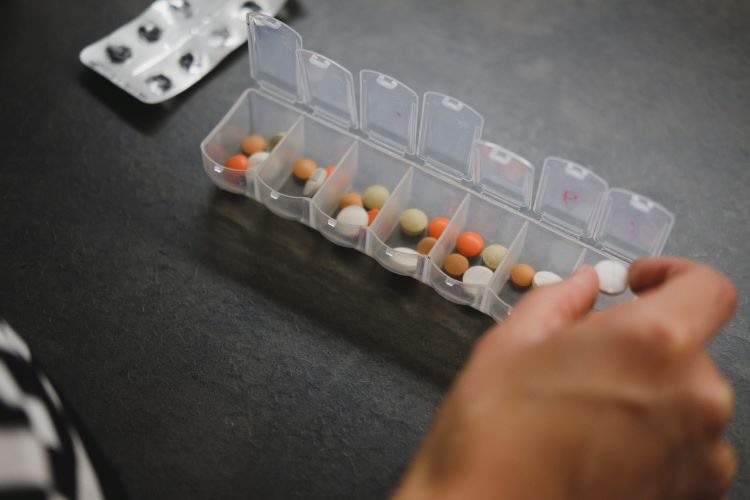Drug and Alcohol Rehab in Northfleet
Addiction and substance abuse refers to the same phenomenon – a psychological disorder in which an individual consistently consumes, seeks, and thinks about a particular drug.
There are also behavioural addictions, though these are not the focus of this article (please see our other web pages or call Rehab Recovery to find out more).
When someone is addicted, there will be many processes happening in their brain relating to substance abuse; addiction is a highly psychological disease, with many different cognitions and thought patterns resulting in the individual’s addictive behaviours (1).
This is why it is important that individuals seek professional rehabilitative care, whether it is through drug and alcohol rehab in Northfleet or any other reputable rehabilitation service provider.
Through Rehab Recovery, individuals can get advice for the future of their rehabilitation journey, as well as be admitted to residential centres to begin the journey to recovery.
Start your recovery journey today by calling our expert team to access drug & alcohol rehab in Northfleet on 0800 088 66 86
The Signs and Symptoms Associated With Drug and Alcohol Addictions

As every individual is able to become addicted to a substance, there are many different ways in which it can be expressed.
Though every individual will display addictive behaviours differently, drug and alcohol rehab in Northfleet recognises this, assessing this as a measure of the type and severity of care that an individual will need in their tailored addiction treatment programme.
Though not every individual will show the same signs and symptoms of addiction, there are some common effects that may happen when an individual is struggling with addiction.
The most common of these are listed below:
- Becoming more secretive about behaviours
- Quick to anger – either at those around them or other stimuli
- Physiological changes – individuals may lose or gain weight suddenly, and skin may become paler/yellower
- Lack of care toward other areas of their life e.g., work/school, hygiene, hobbies
- Annoyance at criticism of their habits
As mentioned above, not everyone may exhibit the same signs and symptoms, there are some common behaviours and changes that you can look for if you suspect a loved one to be struggling with addiction.
Why is it important that I have the motivation to drive me forward?

Through all sources of drug and alcohol rehab in Northfleet, as well as across the remainder of the UK, the first thing that individuals will be told is that their motivation and attitude towards recovery are of utmost importance when it comes to the rate of success.
Without the individual being fully motivated and positive about their recovery, they are unlikely to make meaningful progress throughout their drug and/or alcohol recovery journey.
This means that it is vital for individuals to have a good attitude before entering rehab, being realistic about what to expect that the timeframes in which they may reach different recovery milestones.
Especially at the beginning of rehabilitation, working up the willpower and desire to recover can be difficult, but there are countless sources of support for those struggling with this issue.
Through residential rehab programmes, as well as some outpatient treatments, individuals will have access to social support and counselling – something which is extremely beneficial for individuals progressing through different rehabilitation challenges.
Start your recovery journey today by calling our expert team to access drug & alcohol rehab in Northfleet on 0800 088 66 86
What Happens During Alcohol and Drug Rehab in Northfleet

Through drug and alcohol rehab in Northfleet, there is generally a set process of stages that an individual must progress through during their journey to recovery.
This set of stages is designed to follow the natural stages of withdrawal, as well as support both physical and mental health recovery at the right times – not when they may conflict with each other.
In general, most rehab providers will follow the proceeding stages:
If an individual is seeking help outside of Rehab Recovery’s referral process, then make sure that any service provider follows this approach, as well as having the abstinence approach.
Abstinence is a far more effective approach to rehab when compared to other methods such as harm reduction and moderation management.
This is because the abstinence approach requires the individual to completely cut the substance they are addicted to out of their life and work on finding the root cause of this addiction.
The other approaches have a greater focus on reducing the negative impacts of addiction – something which can be effective but may only be a short-term solution.
1. Medical Alcohol and Drug Detox
The detoxification process is where the individual is likely to experience withdrawal symptoms from the substance they are withdrawing from.
These withdrawal symptoms can vary depending on the substance that the individual is addicted to, as well as the individual’s history of addiction but, as the first stage of rehabilitation, it is essential that individuals complete this stage fully.
In some cases, during withdrawal, it may be suitable for the individual to undergo medical intervention. This is where drugs are supplied to the individual to alleviate any negative physical health effects that the individual may experience.
For example, Librium is a substance commonly used in the early stages of an alcohol addiction withdrawal. Generally, this substance is good at alleviating the most dangerous effects in the first 3-4 days of the individual’s withdrawal, but other measures can be required up to 7 days after withdrawal begins (2).
2. Therapy for Alcohol and Drug Addiction
As the bulk of the individual’s time in drug and alcohol rehab in Northfleet will be spent in this stage of recovery, it is vital that there are sufficient treatment options for the individual’s needs through their chosen rehabilitation service provider.
In most residential centres, as well as some outpatient service providers, the individual may come across some of the following types of therapy/treatment:
- Cognitive behavioural therapy (CBT)
- Dialectical behavioural therapy (DBT)
- Group talking therapy
- Individual counselling
- Family drug support
- Holistic therapies e.g., art, music, equine, yoga
- Co-dependency treatment
Just because some treatments are on this list does not mean that every individual is likely to experience them. In fact, most individuals will not have the same treatment programme – instead, they are likely to experience some of the therapies above, though this may be very different to other individuals in their treatment programme or residential centre.
3. How does Aftercare work?
After leaving drug and alcohol rehab in Northfleet, individuals are most likely going to be offered some form of aftercare service through their rehabilitation service provider.
Through most private residential centres, for example, individuals are offered a complimentary 1-year aftercare support system, complete with a personal addiction support officer for regular progress meetings, access to further independent learning, and the possibility to return to residential care if necessary.
In addition, individuals may choose to undergo further independent learning through their local council in Northfleet, including programmes such as SMART (Self-Management and Recovery Training) as well as access to local Alcoholics Anonymous (AA) and Narcotics Anonymous (NA).
How Long is Rehab?

Every individual is likely to progress through drug and alcohol rehab in Northfleet at a different rate.
This is because every individual will engage in different treatment programmes, therapies, and other activities that all take different lengths of time, as well as taking more time to go through thoroughly and efficiently.
Rehab Recovery suggests a recommended stay of 28 days in a residential rehab centre as this is the amount of time that encapsulates a full detox, enough time for suitable and tailored treatments, as well as enough time for an individual to get the ‘full experience’ of time within residential rehab.
However, there is likely to be variation in this recommended timeframe. A detox, for example, can take anywhere from 7 to 14 days or more for the withdrawal symptoms to be treated, with some withdrawal symptoms lasting for up to a year or more.
Start your recovery journey today by calling our expert team to access drug & alcohol rehab in Northfleet on 0800 088 66 86
Outpatient and Inpatient Rehab Programmes in Northfleet

When it comes to the initial choices of drug and alcohol rehab in Northfleet, there are two main options that individuals can choose from, early on in their rehabilitation journey.
This is the choice between the two different settings of rehabilitation: inpatient and outpatient care.
The key differences are outlined below:
- Inpatient care – conducted in a residential rehab centre, this is the type of care that individuals access while staying in accommodation within one of these centres. Cited as the most effective approach to rehabilitation, this type of care includes rehabilitation treatments and therapies throughout daily life, as part of their everyday routine.
- Outpatient care – conducted outside of a residential rehab centre, this type of care happens on a far less regular basis, with some individuals attending counselling sessions or group therapy maybe once or twice a week or per month, depending on the programme.
Why Choose Private Rehab

As it is a more regular form of care, becomes a part of the individual’s routine, and comes with suitable and tailored programmes for every individual, private residential drug and alcohol rehab in Northfleet is far more effective as a rehabilitation process compared to outpatient treatment.
Though not every individual may be suitable for residential care, it is the option that Rehab Recovery encourages individuals to consider strongly, especially at the beginning of their rehabilitation journey.
Most residential centres also offer specialised detox clinics – staffed and fully stocked with anything that an individual may require during their detoxification process. This makes it a far more effective environment in which an individual can recover.
Detox clinics are also available to individuals who are not undergoing rehabilitation in a residential centre, though the logistics are likely to be slightly more complex.
Our Admissions Process

Before an individual is admitted into a residential drug and alcohol rehab in Northfleet, it is important that Rehab Recovery understands the individual’s situation and, therefore, what will be most suitable for them in terms of suitable treatment programmes and therapies.
In order to ascertain this, any individual seeking access to residential care should be prepared to answer a few questions about their health, their addiction, and their current environment.
A summary of these different areas of assessment are listed below:
- Individual’s addiction – the substance they are addicted to, the regularity of their consumption, and their history of substance abuse
- Individual’s health – the individual’s physical and mental health state e.g., any long-term health issues or ongoing mental health issues
- Individual’s environment – the environment in which the individual currently resides including the area, housing situation, and people that they are surrounded by on a daily basis
Be prepared to answer any questions relating to your addiction, but please be assured that all information will be kept completely confidential and there is no need to commit to entering residential care if you decide that it is not for you – there are other options that can be discussed.
Start your recovery journey today by calling our expert team to access drug & alcohol rehab in Northfleet on 0800 088 66 86
Get help today
If you are looking at beginning your rehabilitation journey and want more information or if you believe that a loved one may be struggling with addiction and need advice, please do not hesitate to get in contact with Rehab Recovery today.
To get in touch ASAP, please use our dedicated addiction support line on 0800 088 66 86 today.
References
[1] Ross, D., Kincaid, H., Collins, P. and Spurrett, D. eds., 2010. What is addiction?. Mit Press.
[2] Lapierre, Y.D., Bulmer, D.R., Oyewumi, L.K., Mauguin, M.L. and Knott, V.J., 1983. Comparison of chlormethiazole (Heminevrin) and chlordiazepoxide (Librium) in the treatment of acute alcohol withdrawal. Neuropsychobiology, 10(2-3), pp.127-130.


